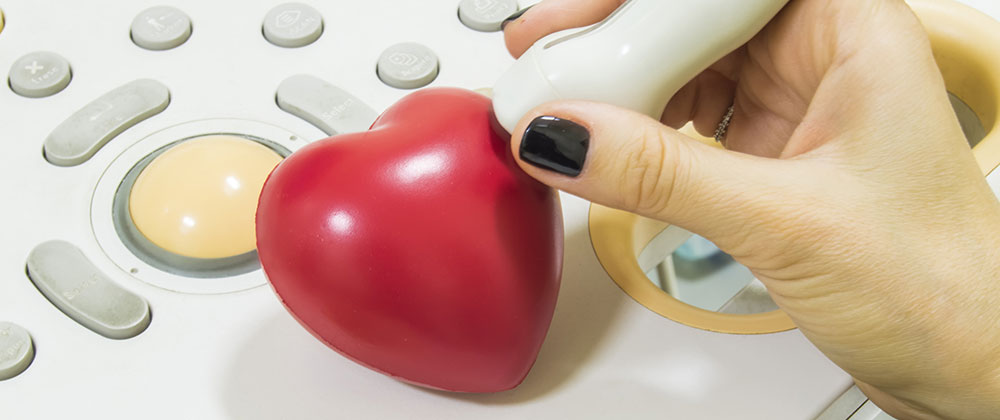Do I Need a Fort Lauderdale Pet Echocardiogram?
If your veterinarian suspects that your pet might have heart disease or has diagnosed it with a heart murmur, they might have recommended an echocardiogram at Fort Lauderdale animal hospital Family Pet Medical Center. This type of test can help diagnose what might be happening with your pet’s cardiovascular system so that appropriate treatment can be recommended. Here’s what to know about your pet’s echocardiogram and what to expect from this procedure.
What Are Pet Echocardiograms?
Pet echocardiograms are diagnostic tools used by veterinarians to view the inside and around your pet’s heart. The echo of this instrument relies on high-frequency sound waves to create images of the heart and its surrounding structures so that your vet can see how your pet’s heart appears and how well it is functioning. From these live images, your veterinarian can learn about the size and shape of your pet’s heart, how well it is functioning, the heart valves, and the surrounding structures. Pet echocardiograms are a type of ultrasound used for the heart.
Why Veterinarians Recommend Pet Echocardiograms
Veterinarians recommend pet echocardiograms when they detect heart murmurs or suspect your pet might have cardiovascular disease. They make these types of recommendations when they have concerns about what appears on x-rays or from clinical symptoms of heart problems such as fainting, shortness of breath, or coughing.
If your pet is young and otherwise healthy but has a heart murmur, this typically will lead to a recommended echocardiogram to diagnose any underlying condition that might be causing the murmur and its severity. If your pet has an underlying congenital disease, it might be improved or repaired to protect your pet’s heart health.
Some heart murmurs are harmless and are not a cause for concern, but they can be difficult to distinguish from murmurs caused by congenital conditions or cardiovascular disease. If your pet is diagnosed with a heart murmur, your veterinarian might initially recommend monitoring your pet until the next checkup to watch for clinical symptoms. However, if your pet has both a heart murmur and is showing clinical symptoms that indicate possible heart problems, your veterinarian might refer you to Fort Lauderdale animal hospital Family Pet Medical Center for a pet echocardiogram.
When the veterinarians at Family Pet Medical Center perform echocardiograms, they can see whether the heart is functioning properly and what the underlying problem is if it is not. Heart disease treatment and medication can be tailored to your pet’s needs when your veterinarian knows what’s happening. Your pet might also undergo an echocardiogram after receiving treatment for a while to ensure the treatment is working or if it needs to be adjusted.
Can My pet Get an Echocardiogram at My Local Veterinary Office?
Many local veterinarians do not have the equipment necessary to perform echocardiograms and make referrals to Fort Lauderdale animal hospital Family Pet Medical Center for this procedure. Echocardiograms also require additional training, knowledge, and technical expertise, so this procedure is typically performed at Family Pet Medical Center instead of local veterinary offices.
When an echocardiogram is performed, the veterinarian will measure the thickness of the heart wall, check for masses in and around your pet’s heart, any fluid in the sac that surrounds the heart, and the blood flow. They will then perform calculations to check the heart’s functioning.
What Happens During am Echocardiogram?
The veterinarians at Fort Lauderdale animal hospital will lay your pet down on a specialized table and hold the probe on your pet’s skin over its heart. The probe transmits sound waves to your pet’s heart that are reflected back to form live images on a screen. Since hair can interfere with sound waves, the veterinarian will likely use alcohol to moisten the skin before the procedure and then apply ultrasound gel to enhance conduction. The probe will be placed on the skin between your pet’s ribs to give a better picture of the heart and its surrounding structures.
The echocardiogram won’t cause your pet to experience pain and will be performed in a dark, quiet room. Pets rarely need sedation for this procedure.
Schedule Your Fort Lauderdale Pet Echocardiogram
If your pet has a referral for an echocardiogram, you don’t need to worry that it will experience any pain or distress. Our experienced veterinarians and staff will help your pet feel comfortable and perform the procedure so that we can identify any treatment that might be needed. Call us today to schedule your appointment at (954) 737-5031.




